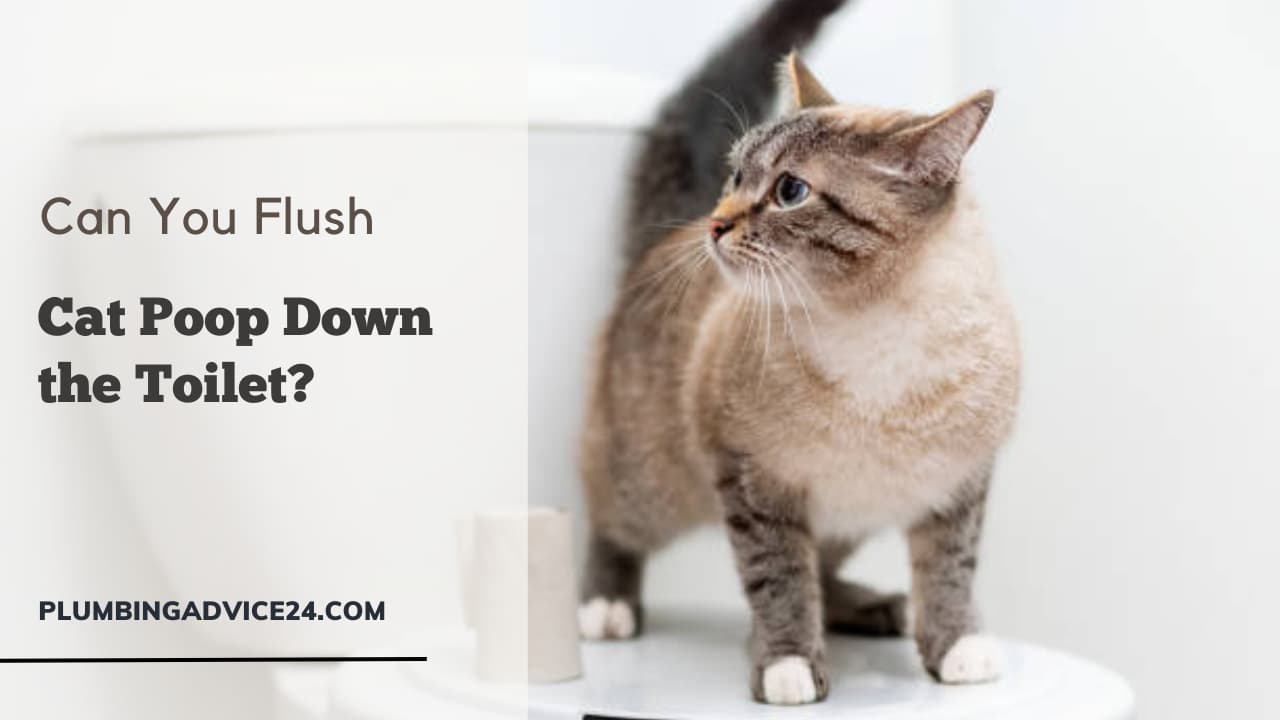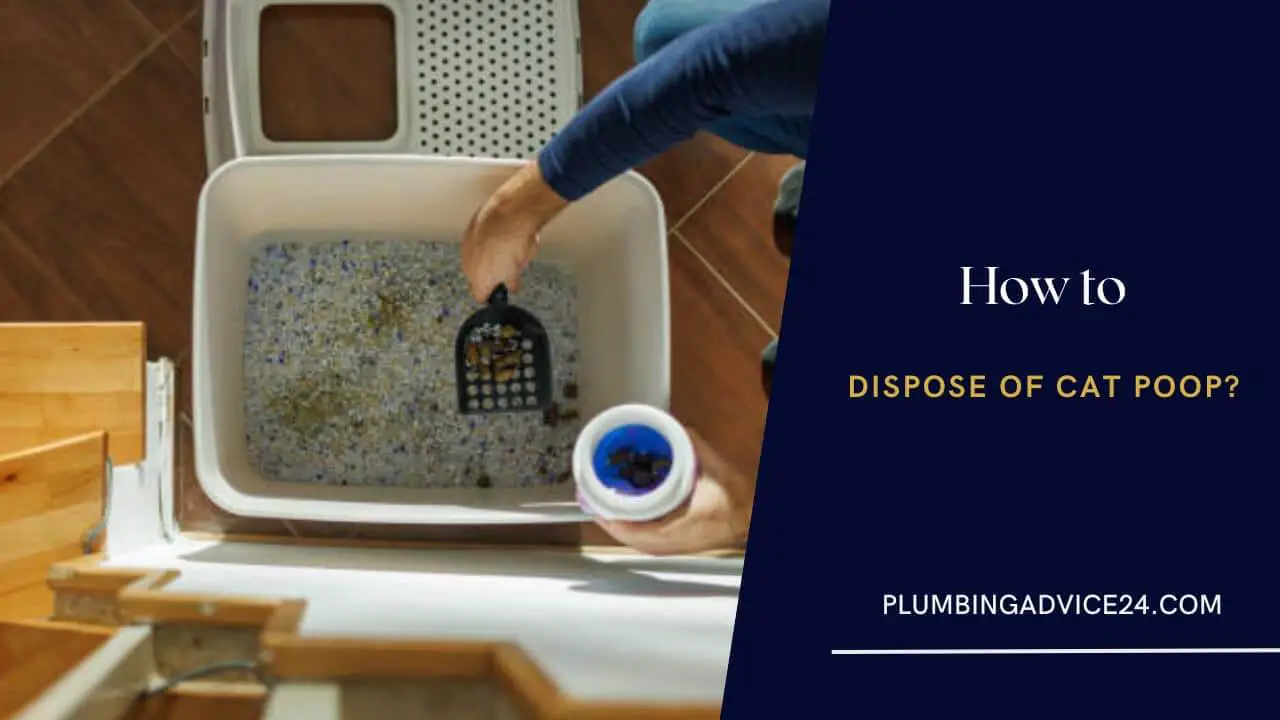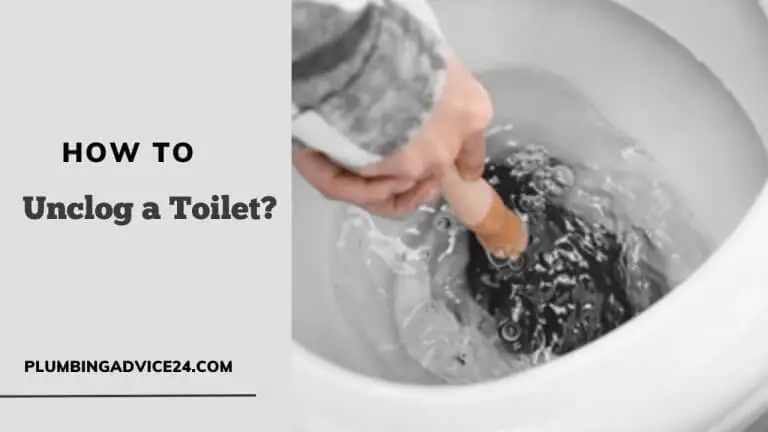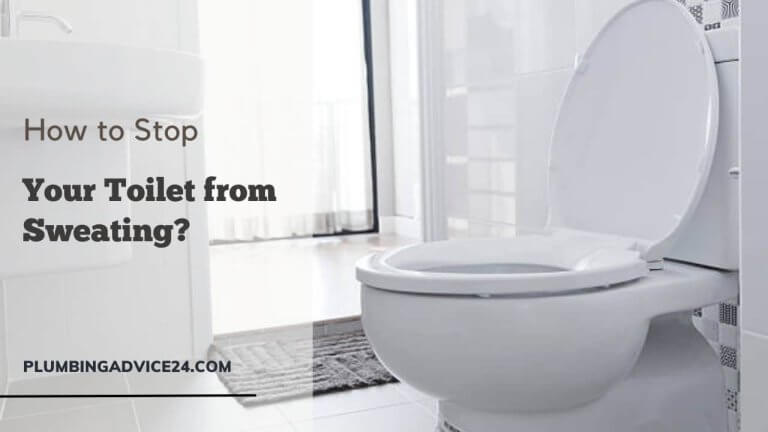Can You Flush Cat Poop Down the Toilet?
Cat owners sometimes think the easiest way to eliminate their pet’s waste is to flush it down the toilet. On the other side, this method could harm human and environmental health. You will learn in this article why it is not a good idea to flush cat poop down the toilet and alternative techniques for dealing with cat waste.
Why Should You Not Flush Cat Poop or Litter?
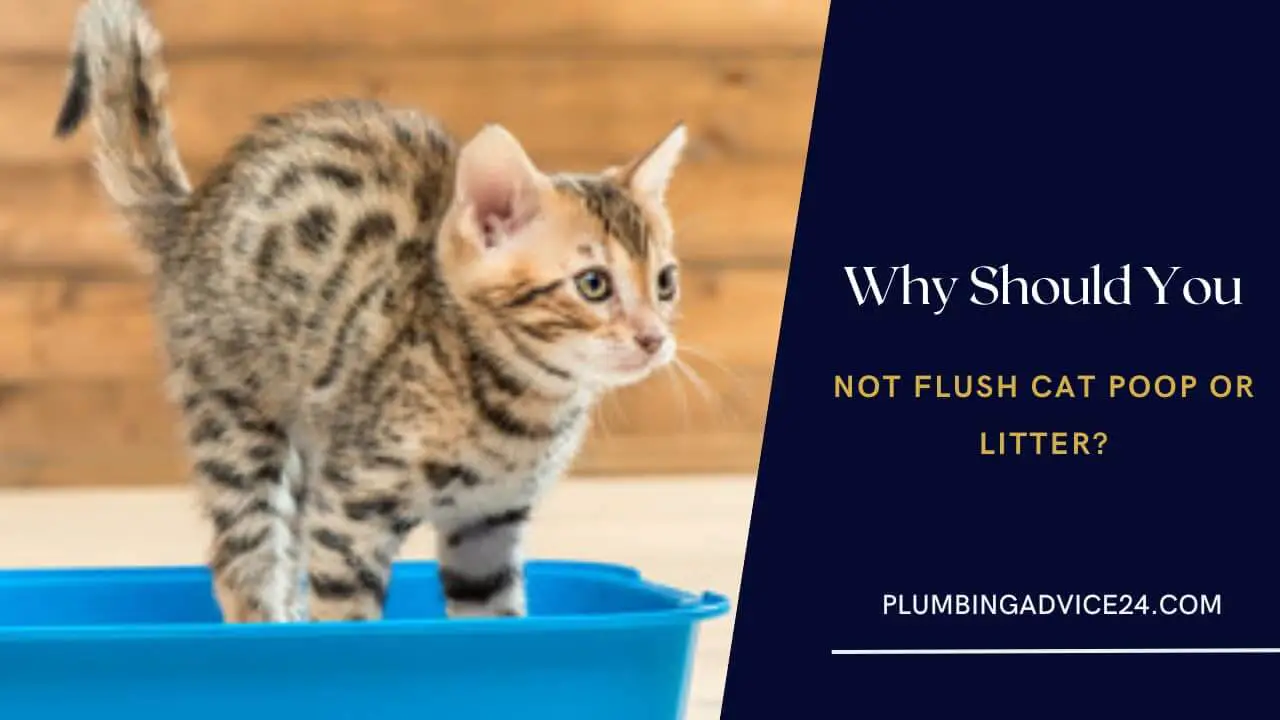
Flushing cat poop down the toilet is not recommended, as cat feces can contain harmful bacteria and parasites, which can survive in the water and cause health problems. Additionally, cat litter can clump and clog pipes, leading to costly plumbing problems. Here are reasons, why you should not flush a cat’s poop:
Environmental Apprehension
Cat poop shouldn’t be flushed down the toilet for several reasons. This poses a threat to the ecosystem. Cat poop may include dangerous viruses like Toxoplasma gondii, which may survive water treatment and end up in our lakes, oceans, and drinking water. People eating tainted seafood are more likely to get certain diseases. Aquatic organisms can get the disease. Because cat litter includes chemicals and pharmaceuticals, it could harm marine environments.
Because it will end up at the wastewater treatment plant, flushing cat poop down the toilet is not a good idea. While wastewater treatment facilities are meant to eliminate toxins from wastewater, specific pathogens that could be present in cat poop may remain after treatment. Infections are more likely to spread to rivers. As a result, they are endangering the ecosystems of those rivers.
Substances in cat litter can harm fish and other marine life. Clay, a common ingredient in cat litter, may include heavy metals like lead. Certain heavy metals may harm fish and other aquatic creatures. Commercial cat litter also contains elements hazardous to marine life, such as laboratory scents.
Health Risks
Cat poop going down the toilet is bad for the environment and might harm your health. Cat poop has been shown to contain harmful bacteria connected to human illnesses. A sick cat’s feces may carry the parasite toxoplasmosis, which may be spread to people. The symptoms include fever, headache, sore muscles, and general tiredness. Pregnant women and others with weakened immune systems are primarily at risk from this condition.
Toxoplasmosis may spread through polluted water and soil if cat poop is flushed down the toilet and ends up in rivers or on the ground. Antibiotic-resistant microorganisms might spread if cat poop is flushed down the toilet. The bacteria that live in a cat’s digestive system might develop drug resistance over time. Antibiotic-resistant germs in the cat’s poop might infiltrate the water supply and soil if flushed down the toilet, threatening human health.
Plumbing-Related Problems
Cat poop flushed down the toilet might harm the pipes. Cat litter may block pipes and septic systems because it clumps together and does not decompose. Your pipes might have serious problems, which would be expensive to fix.
Cat poop flushed down the toilet might cause issues for the city’s sewage system. a potentially hazardous circumstance. Because it might clog the pipes and cause backups, cat poop shouldn’t be flushed down the toilet. Streets, homes, and other public spaces might contaminate raw sewage, risking everyone’s health and safety.
How to Dispose of Cat Poop?
We are lucky to have more effective, environmentally friendly cat poop removal techniques available. Several methods exist to eliminate cat poop, including in the trash. However, choosing recyclable pet litter that dissolves naturally in landfills is crucial. Cat litter that doesn’t break down might linger in landfills for hundreds or even thousands of years before breaking down.
Although it should be removed from water sources and edible plants, cat poop may also be buried in the garden. Make sure you follow all local rules and regulations before burying cat poop. Cat poop must be buried in a yard with organic decomposition-friendly soil, such as recycled cat litter.
Helpful Tips for Disposing of Cat Poop or Litter Properly:
Use cat litter that breaks down over time. Pick a cat litter made from natural materials that degrade quickly, such as wood, paper, or maize. Clay litter should be handled carefully since it might contain metals or harmful chemicals.
Put cat poop and litter in a container made just for them. By keeping things in airtight cases with coverings, you can stop the transmission of germs and offensive smells.
Junk should be put in the trash can. For instance, empty the cat litter box into the trash. Before putting the bag in a trash can with a tight-fitting lid, be sure it is completely sealed.
If you want to get rid of your trash safely and soundly for the environment, you may hide it in your yard. Pick a place far away from water or food supplies useful for survival. Make a hole at least 12 inches deep with a small shovel or scoop, then stuff it with trash. Cover it with soil and mark the spot to prevent digging there again.
Observe all local rules and guidelines about how to dispose of cat waste. Pet poop may be left lying about; this may be against the law in certain places.
Conclusion:-
This article demonstrates why it is not a good idea to flush cat poop down the toilet. If you do it, it’s terrible for the environment, your health, and your lines. Pet owners should not dump cat poop down the toilet to avoid issues. They should instead devise other ways to get rid of it, like tossing it away or burying it in the backyard. Pet owners may improve their quality of life and conserve the environment by implementing these simple measures.
Is It Ok to Flush Cat Poop Down the Toilet?
No, Flushing cat poop down the toilet is not recommended, as cat feces can contain harmful bacteria and parasites, which can survive in the water and cause health problems. Additionally, cat litter can clog and clog pipes, leading to costly plumbing problems.
Does Cat Poop Go in Compost or Garbage?
Composting cat poop is generally not recommended because it can contain harmful pathogens and parasites that can potentially contaminate the soil. Additionally, cat litter often contains materials such as clay or silica that do not break down well in compost. So it is best to dispose of cat poop and litter in the garbage.
Where Do You Put Cat Poop After Scooping?
After scooping cat poop from the litter box, you should dispose of it responsibly. Some disposal options include trash cans, pet waste disposal systems, and flushable cat litter. Be aware that when choosing any method, it is important to follow local regulations for the proper disposal of pet waste.
How Long Does Cat Poop Take to Decompose?
The decomposition of cat feces depends on the environment, temperature, and humidity of the area where it is disposed of. Under ideal conditions, cat feces can take anywhere from a few months to a year to decompose. Meanwhile, it can pose a serious threat to the environment and other wildlife.
How Often Should You Change Cat Litter?
It is recommended to change the cat litter at least once a week. However, if you have more than one cat, you may need to change the litter every other day.
